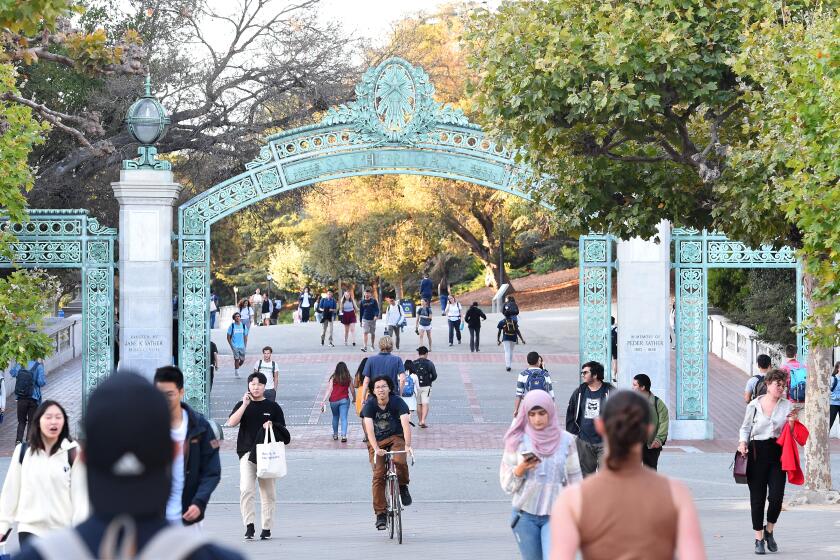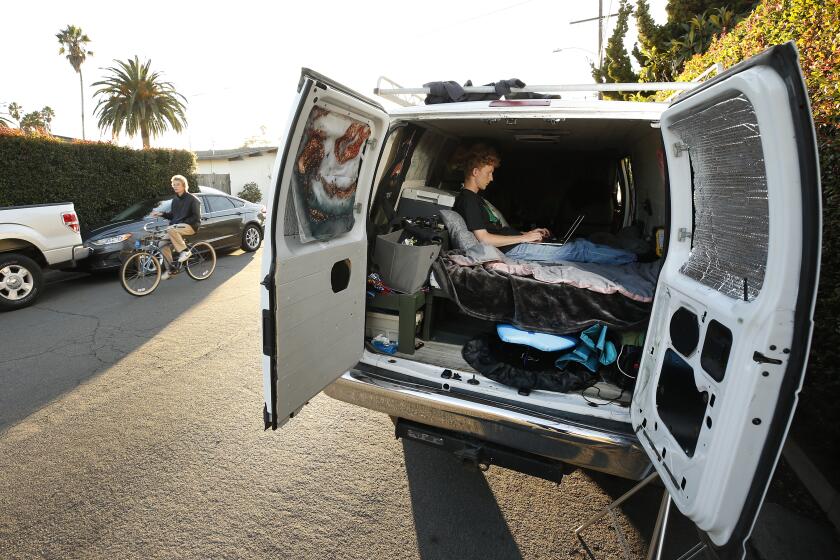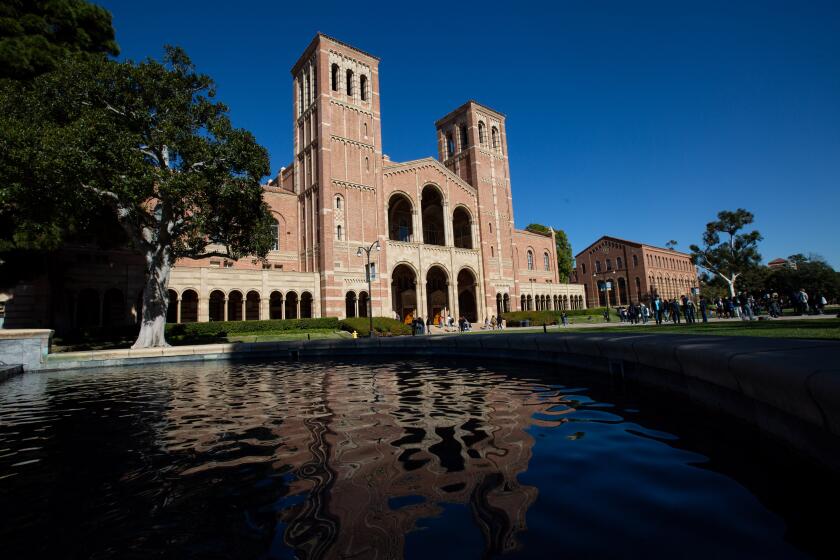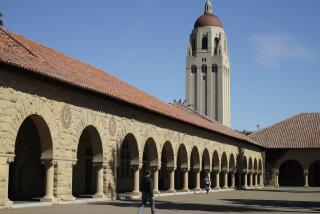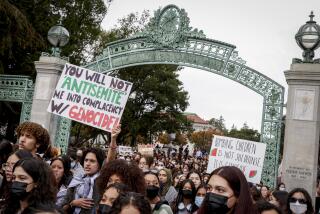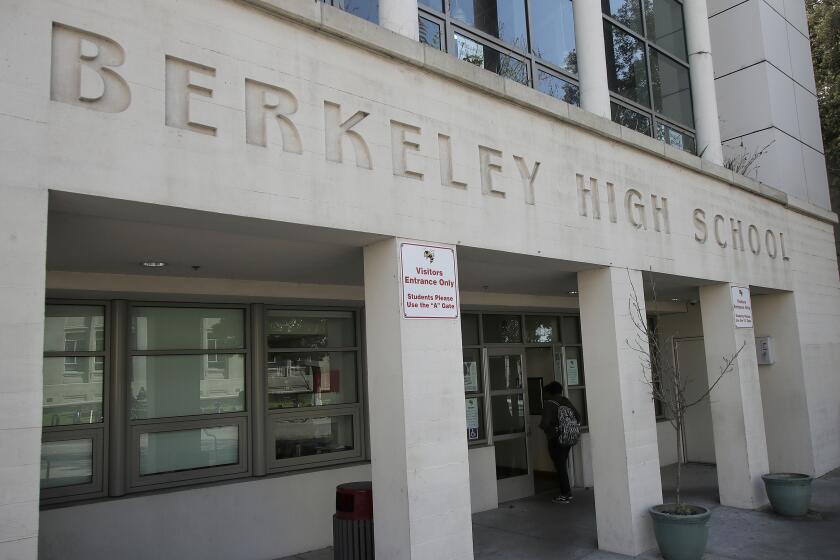UC Berkeley may be forced by court to cut 3,000 undergraduate seats, freeze enrollment
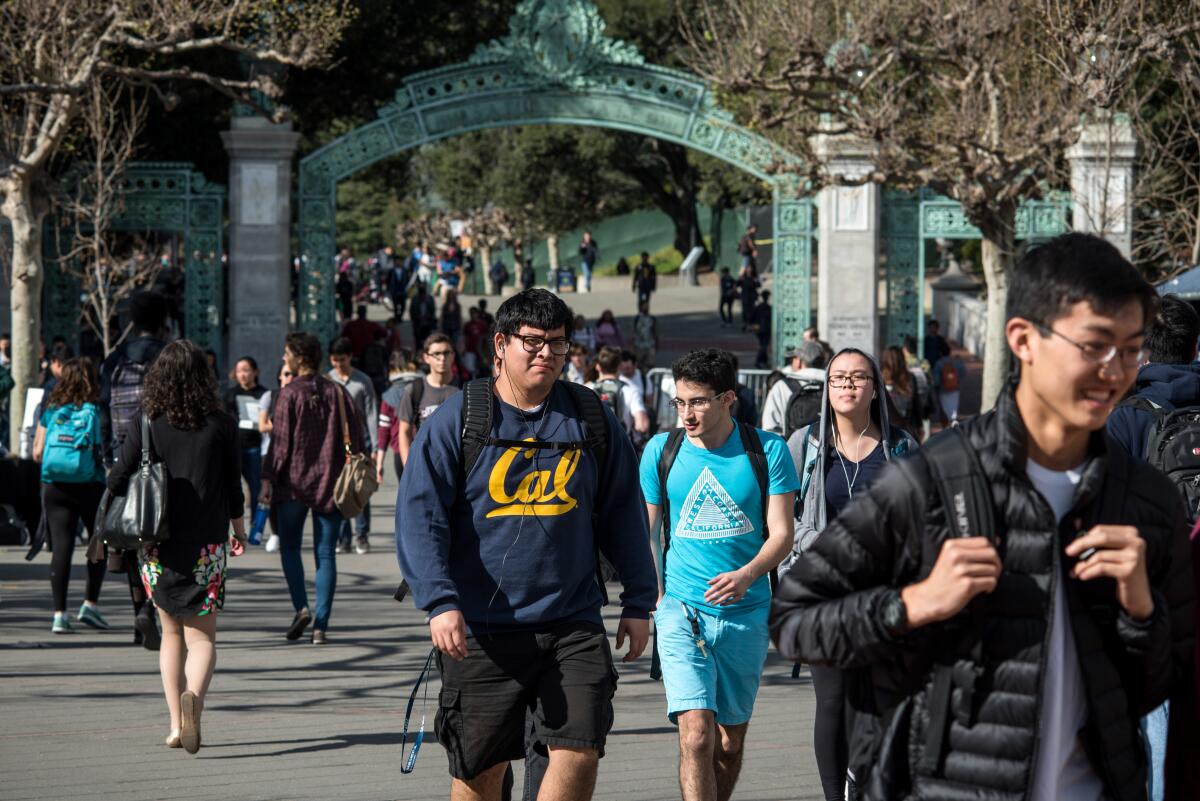
UC Berkeley, one of the nation’s most highly sought after campuses, may be forced to slash its incoming fall 2022 class by one-third, or 3,050 seats, and forgo $57 million in lost tuition under a recent court order to freeze enrollment, the university announced this week.
The university’s projected reduction in freshmen and transfer students came in response to a ruling last August by an Alameda County Superior Court judge who ordered an enrollment freeze and upheld a Berkeley neighborhood group’s lawsuit that challenged the environmental impact of the university’s expansion plan. Many neighbors are upset by the impact of enrollment growth on traffic, noise, housing prices and the natural environment.
The University of California Board of Regents appealed the ruling and asked that the order to freeze enrollment be stayed while the appellate process proceeds. Last week, an appellate court denied that request. The regents on Monday appealed that judgment to the California Supreme Court.
“This court-mandated decrease in enrollment would be a tragic outcome for thousands of students who have worked incredibly hard to gain admission to Berkeley,” UC Berkeley said in a statement. “If left intact, the court’s unprecedented decision would have a devastating impact on prospective students, university admissions, campus operations, and UC Berkeley’s ability to serve California students by meeting the enrollment targets set by the state of California.”
The campus said the loss of $57 million in tuition revenue would reduce available financial aid, squeeze campus operations and possibly limit class offerings.
Phil Bokovoy, president of Save Berkeley’s Neighborhoods, which filed the lawsuit, blamed the crisis on the university, saying the campus has failed to build enough housing to accommodate its growing student population. He added that UC Berkeley could manage the court-ordered enrollment freeze without hurting California students by reducing admission offers to international and out-of-state students.
The CEQA lawsuit stopping UC Berkeley from expanding enrollment shows it’s too easy to exploit California’s main environmental law.
“It’s irresponsible for Berkeley to add 3,000 new students in the midst of a terrible housing crisis,” Bokovoy said.
The furor has left 150,000 first-year applicants to UC Berkeley in the lurch, just a month before the campus is scheduled to send out admission offers. At Downtown Magnets High School in Los Angeles, several students said they were shocked Monday evening when they received an email from Berkeley alerting them about the potential for reduced admissions.
The news hit hard, since the high school of high-achieving, low-income students has done well with Berkeley admissions.
“Everyone was talking about this in class and, oh my god, everyone is so scared,” said Nicholas Tran, a senior with a 4.5 GPA who counts Berkeley in his top five campuses of choice.
The court fight underscores the conflicting and growing pressures on UC over enrollment. Legislators, families and equity advocates are pushing campuses to increase seats for California students, particularly those who are still underrepresented in the nation’s premier public university research system. Many policymakers say the state’s economic future is at stake, as California is facing a looming shortage of 1.1 million workers with bachelor’s degrees by 2030 to meet its workforce needs.
California’s student-housing crisis has forced hundreds of UC students to live in hotel rooms and vehicles. But campus building efforts have sparked litigation and outcry at campuses, including UC Santa Barbara.
Meanwhile, demand for UC seats continues to rise. As more California high school students meet UC eligibility requirements and barriers to entry fall, such as UC’s 2020 elimination of SAT and ACT scores for admission, UC applications are skyrocketing. The record-shattering applications for fall 2021, however, led to major heartbreak in the spring, when campuses sent out acceptance letters: Although the UC admitted 132,353 freshman applicants, an 11% increase over the previous year, more than 71,000 were denied admission, including nearly 44,000 Californians. Admission rates fell at seven of the nine undergraduate campuses — dropping at UCLA to 9.9% for California freshmen applicants.
And future trends look bleak. The number of students who meet UC and California State University admission requirements but can’t enroll in a four-year institution because of a shortfall of seats could nearly double from about 73,000 students in 2018-19 to 144,000 by 2030, according to a study by the College Futures Foundation.
UC Berkeley’s announcement came during an Assembly budget hearing on higher education Monday featuring UC President Michael V. Drake, along with California State University Chancellor Joseph I. Castro and California Community Colleges Chancellor Eloy Ortiz Oakley.
Assemblyman Kevin McCarty (D-Sacramento), who has pushed UC to expand access to California students, called the Berkeley news “disappointing” and noted that legislators have been “listening to the concerns of these college towns” by launching a new $2-billion fund to help public campuses build student housing.
Berkeley has been ordered to freeze student enrollment at the 2020-21 level of 42,347. To get to that number — which is 3,050 fewer seats than planned for fall 2022 — the campus said it would need to reduce admission offers by at least 5,100 to account for the share who decline the acceptance. Berkeley argues that freezing enrollment at 2020 levels is inappropriate because the pandemic caused it to drop “dramatically and unexpectedly” that year as students took time off.
Remarkable application surges among Black, Latino and other underrepresented students put the system within reach of dismantling long-standing admission barriers.
The ruling by Judge Brad Seligman came in a lawsuit by Save Berkeley’s Neighborhoods, which has filed numerous legal challenges to campus growth plans since 2018, including the latest project to add academic space and about 30 additional beds for graduate students. The group asserted that UC Berkeley failed to consider reducing enrollment to avoid adverse environmental impacts and, since 2005, has added 11,000 students beyond the 2020 target laid out in the campus long-range development plan.
The group said most of Berkeley’s excess enrollment has consisted of nonresident students, who pay higher tuition, and that the burgeoning numbers are taxing the city’s resources, including housing, police and fire services, water and park space, and contributing to noise and trash.
Berkeley, in its environmental impact study, argued there was no need to consider reductions because enrollment growth in previous years had had “no significant environmental impacts.”
Seligman disagreed. He also ordered UC regents to void for now their approval of the campus project to create more academic space and housing for faculty, postdoctoral researchers and graduate students.
In its appeal, UC asked the state high court to stay the order to freeze enrollment by 5 p.m. Friday because the campus is now assessing 150,000 first-year applicants and is scheduled to release most admission offers March 24. The enrollment cap will impose “immediate, significant, and burdensome changes to the UC Berkeley admissions process that could only be achieved at this point by delaying sending acceptance letters,” UC said.
The university added that low-income, underrepresented students would be disproportionately affected by a delay because they would have less time to obtain adequate financial assistance counseling in time for the May 1 commitment deadline.
Some elected officials voiced outrage at the litigation and court order and said they planned to take action. State Sen. Scott Wiener (D-San Francisco) said he would unveil legislation next week related to the state environmental law that was used by the Berkeley neighborhood group. He declined to release details but said the state law was never meant to stop public universities from expanding to meet student needs.
“It’s outrageous that a court is dictating a student enrollment cap for UC,” he said. “That’s a complete overreach.”
Bokovoy, however, said the Legislature specifically required UC to study the impacts of enrollment on surrounding cities and that Seligman also ordered such an analysis, finding that enrollment increases had a demonstrable negative effect on housing displacement and homelessness in Berkeley. He said his group is open to negotiations and would support increases in student enrollment if they were tied by a binding agreement to housing for them.
Berkeley City Councilman Rigel Robinson, an alumnus whose district includes the campus, said the city also had concerns about the impact of student enrollment growth on public services. But the city and university hammered out a $82.6-million settlement last August that more than doubled the campus’ annual payments to cover the cost of student use of police, fire, transportation and other services.
He said UC Berkeley’s transformational impact as an engine of upward mobility needed to be shared with ever more students, particularly those from diverse, underserved backgrounds.
“The solution isn’t closing the door on the next generation of students,” he said. “It’s working together to plan for growth that works for both the city and the campus.”
More to Read
Start your day right
Sign up for Essential California for news, features and recommendations from the L.A. Times and beyond in your inbox six days a week.
You may occasionally receive promotional content from the Los Angeles Times.
